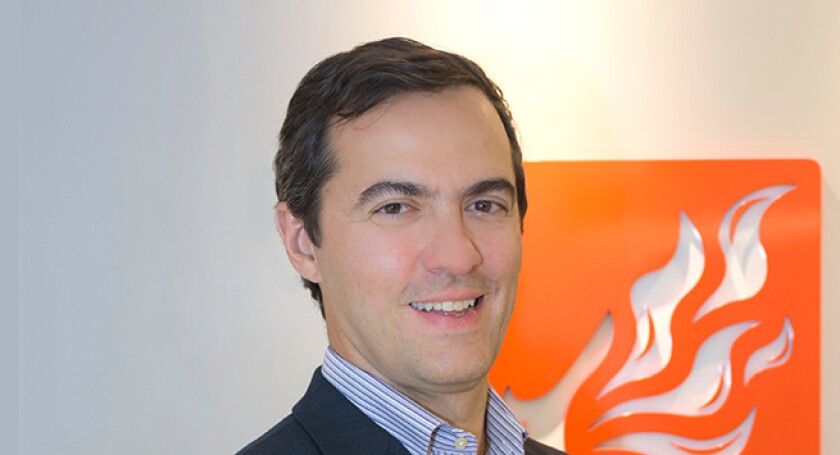Formed in 2015 through the acquisition of T4U, in the past five years, Phoenix Tower do Brasil has build over 1,000 towers, acquired a small cells business and started a new fibreco, Phoenix Fiber do Brasil. Whilst the COVID-19 pandemic has slowed capex deployment in the past quarter and pushed back the 5G spectrum, major growth is forecast in Latin America’s largest mobile market. TowerXchange speaker to Phoenix Tower do Brazil’s CEO Maurício Giusti to find out more.
TowerXchange: Most of our readers are familiar with Phoenix Tower do Brasil but could you please provide an overview of the company and its portfolio in Brazil?
Maurício Giusti, CEO, Phoenix Tower do Brasil:
Phoenix Tower do Brasil started its operations in 2015 with the acquisition of T4U, which was one of the pioneer tower companies in Brazil. With the support of Blackstone equity, PTB started to accelerate the growth in different dimensions. PTB became one of the leaders in the traditional BTS market, building more than 1,000 new sites in the recent years. PTB believes that 5G will boost telecom infrastructure demand, especially in regards to small cells. In February 019, PTB acquired K2-Tower the leading small cell operator in Brazil with more than 500 deployed sites. PTB started also to explore opportunities in the fibre space and in April 2019, a new company was created: Phoenix Fiber do Brasil, which is focused in providing neutral wholesale fibre solutions for telcos and ISP. Phoenix Fiber do Brasil operates 11 cities with FTTH and is planning to achieve 0,5mm of HP by the end of 2021.
TowerXchange: After a few years of recession and despite the unfortunate expansion of COVID-19, Brazil is back as one of the most promising telecom infrastructure markets in Latin America. Could you please provide an overview of the main growth drivers and opportunities for towercos and investors?
Maurício Giusti, CEO, Phoenix Tower do Brasil:
Brazil has an important infrastructure gap in many areas. In telecom, there are segments that are more critical; firstly it is clear that it is necessary to at least double the number of towers in the market given the high ratio of users per site, the large size of the country and the growth in internet traffic. Secondly, with 5G deployment a great number of new sites (macro and small cell) will be necessary in addition to this. Thirdly, to provide broadband for exponentially growing internet traffic, fibre will be necessary, not only for end user (fixed broadband), but also to provide backhaul to macro and small cell sites. The spread of COVID-19 has reduced capex deployment in the last quarter, but it is possible to perceive clear recovery signs in the economy and in telco’ capex demand. It is clear as well that the world will be different after COVID-19 and one of the main changes will be related to the accelerated adoption of home office, e-commerce and digital services, which create even more demand for telecom infrastructure.
TowerXchange: TowerXchange learned that Brazil is one of the first countries in Latin American where towercos have started to consider the integration of energy among their services. Is this something that PTB is currently exploring? What are the main drivers?
Maurício Giusti, CEO, Phoenix Tower do Brasil:
Telcos needs to become even more focused on their clients and digital services. It is a distraction for a telco to spend management time in aspects like energy and having a towerco managing energy solutions is also a source of efficiency since the solutions can be designed to be shared. However, towercos need to be prepared to absorb part of these elements in their value proposition.
TowerXchange: Last year you acquired K2 Towers. Could you talk about the drivers behind this deal and how has that acquisition better positioned PTB to serve its clients?
Maurício Giusti, CEO, Phoenix Tower do Brasil:
PTB’s strategy is to be the largest and best small cell supplier in Brazil and the acquisition of K2-Tower was a critical step in this direction
We firmly believe that the deployment of 5G will involve not only the new traditional BTS and collocations, but also the implementation of small cells, which is a crucial element of the network, especially in urban areas. Some studies say that the number of new small cells needed for 5G is 5-10 times the current number of traditional sites. The deployment small cells is complex because it is important to provide a clean visual solution that does not harm the city landscape. K2-Tower is a company specialised in providing the best in class solutions for small cells, completely camouflaged in the landscape. PTB’s strategy is to be the largest and best small cell supplier in Brazil and the acquisition of K2-Tower was a critical step in this direction. We integrated K2-Tower with PTB, but we retained the management autonomy of the K2-Tower management team to ensure that focus and excellence are maintained and expanded.
TowerXchange: Although Anatel has postponed the spectrum auction, the country is already looking at 5G and MNOs have already started testing the technology with different projects and trials. How is demand evolving and how is the industry adapting?
Maurício Giusti, CEO, Phoenix Tower do Brasil:
The 5G auction should happen in 2021 which could represent a delay whether compared with the initial projections, but considering the COVID-19 impacts, the postponing is not relevant and can bring a few benefits to the market. The technology will be a little more mature and the deployment will be less costly, 5G ready smart phones will be more available and cheaper, and finally, the 5G ecosystem will be more advanced with new business models supported by the new technology. This unexpected delay caused by the COVID-19 will be healthier for the telcos that will be able to have a more economically robust 5G launch.

